第34章
The view of these difficulties presents us with a very natural origin of the superior disgrace which attends a breach of chastity in the woman than in the man. It could not be expected that women should have resources sufficient to support their own children. When therefore a woman was connected with a man, who had entered into no compact to maintain her children, and, aware of the inconveniences that he might bring upon himself, had deserted her, these children must necessarily fall for support upon the society, or starve. And to prevent the frequent recurrence of such an inconvenience, as it would be highly unjust to punish so natural a fault by personal restraint or infliction, the men might agree to punish it with disgrace. The offence is besides more obvious and conspicuous in the woman, and less liable to any mistake. The father of a child may not always be known, but the same uncertainty cannot easily exist with regard to the mother. Where the evidence of the offence was most complete, and the inconvenience to the society at the same time the greatest, there it was agreed that the large share of blame should fall. The obligation on every man to maintain his children, the society would enforce, if there were occasion; and the greater degree of inconvenience or labour, to which a family would necessarily subject him, added to some portion of disgrace which every human being must incur who leads another into unhappiness, might be considered as a sufficient punishment for the man.
That a woman should at present be almost driven from society for an offence which men commit nearly with impunity, seems to be undoubtedly a breach of natural justice. But the origin of the custom, as the most obvious and effectual method of preventing the frequent recurrence of a serious inconvenience to a community, appears to be natural, though not perhaps perfectly justifiable. This origin, however, is now lost in the new train of ideas which the custom has since generated. What at first might be dictated by state necessity is now supported by female delicacy, and operates with the greatest force on that part of society where, if the original intention of the custom were preserved, there is the least real occasion for it.